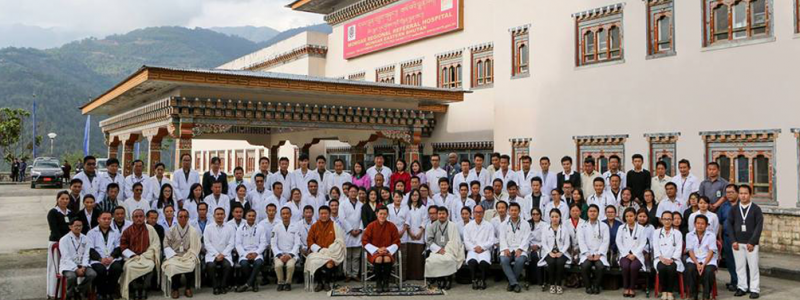Dengue at Large
The country recorded close to 1,500 dengue cases in 15 different hospitals including Basic Health Units (BHUs) in about two months time (BBS: 22nd August).
Mongar Regional Referral Hospital alone recorded 17 cases of dengue fever confirmed through laboratory examination as of today. The first case of dengue fever at MRRH was recorded on 23rd July, of the total 12 were adult males, 2 adult females and 3 children below 13 years old. The indoor record of admitted patients shows there were more than 50 patients with similar signs and symptoms of dengue fever in just more than a months time.
Dengue fever which is most common in southern parts of the country is reported to have spread all across the country this season. The first outbreak of dengue fever in the north east part of the country is reported from Doksum, Trashiyangtse and several of its cases were referred to Mongar for further management.
Dengue fever is a mosquito borne disease caused by dengue virus and spread mainly by female mosquitoes of type Aedes Aegypti. They typically bite during the early morning and in the evening but they may bite at any time of day. However the dengue is not fatal if treated at earliest but its fatality rate increases with delay in treatment due to complications such as dengue haemorrhagic fever and dengue shock syndrome. There is no definitive treatment to dengue infection.
The incubation period ranges from 3 to 14 days, so it’s likely to develop signs and symptoms after two weeks of infection.
Preventive Measures
The basis of prevention is control and protection from bites of mosquito that transmits it. The basic recommended measures are:
- Get rid of open stagnant water.
- Wear long sleeve shirts and long pants.
- Use mosquito net.
- Application of mosquito repellents.
- Use electrical repellent such as good night power.
Dengue is preventable if measures are taken into consideration and curable viral disease if prompt treatment is received.
Compiled by: Ugyen Dorji




